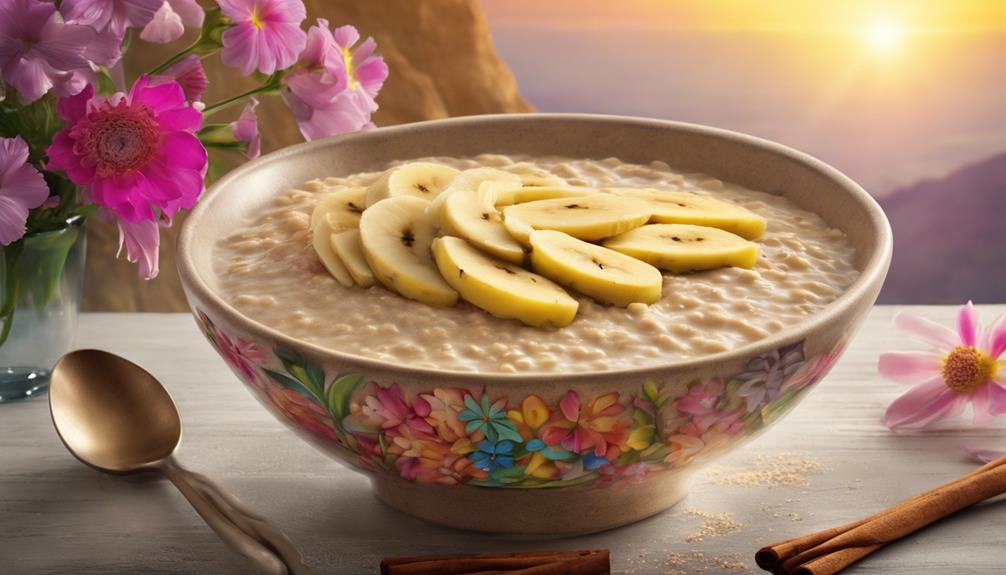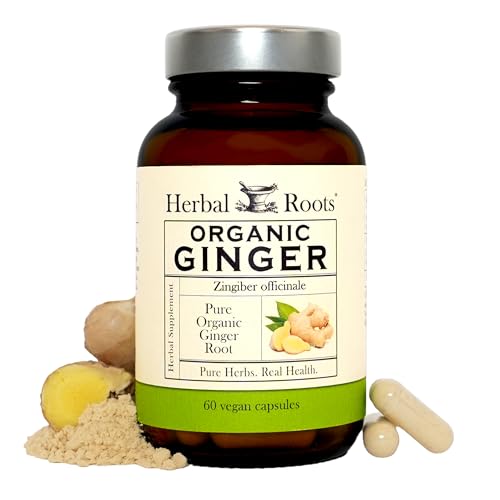When it comes to dealing with colic in infants, the way we feed them can make a significant difference in providing relief. As caregivers, we understand the importance of trying gentle dietary changes to help ease their discomfort.
The impact of certain foods on a breastfeeding mother's diet in soothing colic symptoms is a topic worth exploring further. Let's navigate the world of breastfeeding diets tailored to ease colic in infants and uncover the potential benefits of specific food choices for both mother and baby.
Key Takeaways
- Chamomile tea, oatmeal, and ginger are soothing foods that can help alleviate colic in babies.
- Moderation and consultation with healthcare providers are essential when incorporating chamomile tea into breastfeeding diets.
- Oatmeal's comforting properties and nutritional benefits make it a suitable choice for both mother and baby.
- Ginger's digestive support and anti-inflammatory properties can effectively reduce discomfort associated with colic.

Traditional Medicinals Organic, Chamomile Tea – Supports Stress Relief and Relaxation – Kosher, Non-GMO, Caffeine-Free, Compostable – 16 Tea Bags
Herbal stress relief tea: Organic Chamomile tea calms your nerves and supports healthy digestion to help you relax*
As an affiliate, we earn on qualifying purchases.
As an affiliate, we earn on qualifying purchases.
Chamomile Tea
When considering incorporating chamomile tea into your breastfeeding diet to help soothe your colicky baby, it's important to prioritize purity and moderation. Chamomile tea is renowned for its calming effects and can be beneficial in alleviating colic symptoms in infants due to its anti-inflammatory and anti-spasmodic properties. Consuming chamomile tea in moderation while breastfeeding may allow the soothing benefits to pass through breast milk to your baby. Making sure that the chamomile tea you consume is free from additives or caffeine is essential to prevent any potential adverse effects on your little one.
Before introducing chamomile tea into your breastfeeding diet to help soothe your colicky baby, consulting with a healthcare provider is advisable. They can provide personalized guidance and make sure that incorporating chamomile tea aligns with your overall health and well-being, as well as your baby's. Prioritizing the purity and moderation of chamomile tea consumption can be a gentle yet effective way to support your baby's comfort during breastfeeding.

MOM Brands Better Oats Revolution Steel Cut, Classic, 11.6 Ounce
Oat revolution 100% premium steel cut oats are cut thick to preserve their natural texture
As an affiliate, we earn on qualifying purchases.
As an affiliate, we earn on qualifying purchases.
Oatmeal

To continue supporting your colicky baby's comfort through your breastfeeding diet, let's explore the soothing benefits of incorporating oatmeal into your meals. Oatmeal is a wonderful addition to a breastfeeding mother's diet as it is rich in fiber, aiding in digestion and potentially reducing colic symptoms in your little one. This whole grain is also a great source of iron, essential for both you and your baby's health during this important time. By including oatmeal in various dishes like porridge, cookies, or smoothies, you can enjoy sustained energy levels to help maintain your milk supply and support your baby's growth. The comforting and nutritious nature of oatmeal offers a calming effect, providing a sense of relief for both you and your colicky infant.
| Benefits of Oatmeal | |
|---|---|
| High in Fiber | Aids in Digestion |
| Rich in Iron | Supports Health |
| Sustained Energy | Promotes Comfort |

Herbal Roots Ginger Supplement | Organic Ginger Root Capsules | 1,200 mg of Pure Ginger Powder per Serving | 60 Vegan Capsules
DIGESTIVE HEALTH – Aids in digestive health, nausea, and motion sickness*
As an affiliate, we earn on qualifying purchases.
As an affiliate, we earn on qualifying purchases.
Ginger
Incorporating ginger into your breastfeeding diet can provide soothing relief for your colicky baby due to its anti-inflammatory properties and digestive benefits. Ginger is well-known for its ability to calm the digestive system and alleviate symptoms like indigestion, bloating, and gas in infants. By adding ginger to your meals or teas, you can pass on its soothing effects to your baby through breast milk. This natural remedy can help reduce discomfort associated with colic in breastfed infants.
When dealing with colic in breastfed babies, it's crucial to be mindful of colic-causing foods. By incorporating ginger into your diet, you can potentially avoid aggravating your baby's symptoms. Ginger's properties can aid in promoting a healthy digestive system for both you and your little one. Consider including ginger in your breastfeeding diet as a safe and effective way to support your baby through colicky episodes.

Aromlife Postpartum Tea for Women Postnatal Hormone Balance, Organic Raspberry Tea New Mama Postpartum Essential, 10 Teabags Postpartum Herbal Tea Breastfeeding-Friendly and Helps Postpartum Recovery
Comprehensive Postpartum Support: The organic postpartum tea blend of herbs works synergistically after birth. The postnatal hormone balance…
As an affiliate, we earn on qualifying purchases.
As an affiliate, we earn on qualifying purchases.
Frequently Asked Questions
What Can I Eat to Reduce Colic in Breastfed Babies?
We found that incorporating bananas, oatmeal, and ginger into our diet while breastfeeding helped soothe our colicky baby. These foods, rich in nutrients and fiber, aided digestion and reduced symptoms. It made a noticeable difference in our baby's comfort.
What Is the 3 3 3 Rule for Colic?
We follow the 3 3 3 rule for colic, feeding every 3 hours, soothing for 3 minutes, and letting baby cry for 3 minutes. This routine helps regulate feeding and sleeping, reducing colic symptoms and providing comfort.
What Foods Should You Avoid When Breastfeeding a Baby With Colic?
When breastfeeding a baby with colic, we avoid dairy, caffeine, gas-producing veggies, spicy foods, nuts, and peanuts. These items could trigger allergic reactions, gassiness, or discomfort in the little one, so it's best to steer clear.
How Can I Reduce My Colic While Breastfeeding?
To reduce colic while breastfeeding, we focus on eliminating potential allergens like cow's milk, eggs, wheat, and peanuts. Tracking food and symptoms helps pinpoint triggers. Consulting a dietitian for personalized advice on a balanced, soothing diet is important.
Can a Dairy-Free Breastfeeding Diet Help Soothe a Baby’s Colic?
For some babies, a dairy-free breastfeeding diet can be a game-changer when it comes to soothing colic. By avoiding dairy products while breastfeeding, you may notice a significant improvement in your baby’s colic symptoms. Making the switch to breastfeeding without dairy restrictions can bring relief to both you and your little one.
Conclusion
As we nourish our little ones with love and care, let's remember the power of incorporating soothing foods into our breastfeeding diet.
Just as chamomile tea calms the storm within, oatmeal provides a comforting embrace, and ginger works its magic to ease discomfort.
Together, these foods can help alleviate colic symptoms and bring relief to our precious babies.
Let's feed them with not just food, but with the healing touch of nature's remedies.









